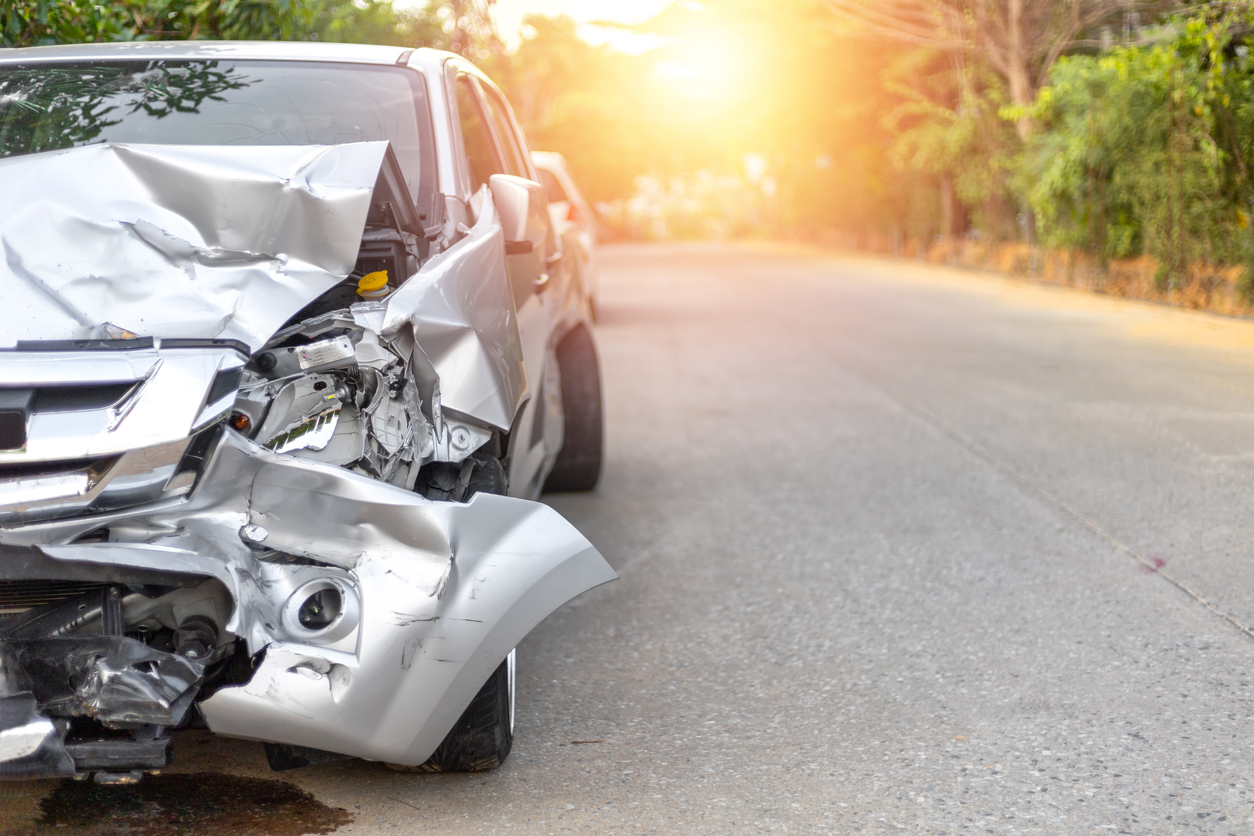
Vehicular manslaughter is a grave offense that can result in severe legal consequences for those found guilty. The seriousness of the crime is magnified when alcohol or drug use is involved, as it often plays a pivotal role in the incidents leading to the tragic loss of life. Understanding the role of alcohol and drug use in vehicular manslaughter cases is crucial for anyone involved in or affected by such incidents. This knowledge can shed light on the legal processes, the impact on the accused, and the potential defenses that might be available.
The Legal Definition of Vehicular Manslaughter
Vehicular manslaughter, also known as vehicular homicide, occurs when a driver unintentionally causes the death of another person due to reckless or negligent driving. Unlike murder, which involves intent, manslaughter is typically characterized by a lack of intent to kill but involves actions that are nonetheless dangerous. When alcohol or drug use is involved, the legal implications become even more significant, as these substances impair a driver’s ability to operate a vehicle safely.
In many jurisdictions, vehicular manslaughter charges can be divided into different categories based on the level of negligence or recklessness involved. For example, a driver who causes a fatal accident while under the influence of alcohol or drugs may face more severe charges than a driver who was merely speeding. The presence of intoxicating substances in the driver’s system can be a determining factor in whether the charge is considered gross negligence, which carries heavier penalties.
The Impact of Alcohol on Driving Ability
Alcohol is a depressant that affects the central nervous system, leading to impaired motor functions, decreased reaction times, and poor decision-making. When a driver is under the influence of alcohol, their ability to operate a vehicle safely is significantly compromised. Even small amounts of alcohol can affect a driver’s reflexes and judgment, making it more difficult to respond to unexpected situations on the road.
In vehicular manslaughter cases, the level of alcohol in the driver’s bloodstream at the time of the accident is often a key piece of evidence. Blood alcohol concentration (BAC) is measured to determine the extent of impairment. In most states, a BAC of 0.08% or higher is considered legally impaired. However, even a BAC below this threshold can be used as evidence of impairment, especially if the driver’s behavior suggests that they were not in full control of their faculties.
The impact of alcohol on driving ability is not limited to physical impairment. Alcohol also affects cognitive functions, leading to poor decision-making and increased risk-taking behaviors. This combination of physical and cognitive impairment makes driving under the influence of alcohol extremely dangerous and is a leading cause of fatal accidents.
The Role of Drugs in Vehicular Manslaughter
The use of drugs, whether illegal substances or prescription medications, can also play a significant role in vehicular manslaughter cases. Like alcohol, drugs can impair a driver’s ability to operate a vehicle safely by affecting their motor skills, perception, and judgment. However, the effects of drugs on driving ability can vary widely depending on the type of drug used, the amount consumed, and the individual’s tolerance.
Illegal drugs such as cocaine, methamphetamine, and marijuana are commonly associated with impaired driving. These substances can cause hallucinations, extreme mood swings, and a false sense of invincibility, all of which can lead to reckless driving behavior. In cases where a driver is found to have been under the influence of illegal drugs at the time of a fatal accident, the prosecution may seek to prove that the drug use directly contributed to the reckless behavior that caused the death.
Prescription medications can also impair driving ability, especially when they are taken in higher doses than prescribed or combined with other substances, such as alcohol. Medications that cause drowsiness, dizziness, or slowed reaction times can be particularly dangerous when taken before driving. In some cases, a driver may not even be aware that their medication could impair their ability to drive, leading to unintentional but nonetheless dangerous behavior on the road.
Proving Impairment in Vehicular Manslaughter Cases
One of the key challenges in vehicular manslaughter cases involving alcohol or drug use is proving impairment. The prosecution must demonstrate that the driver was impaired at the time of the accident and that this impairment directly contributed to the fatality. This often involves presenting evidence such as BAC levels, drug test results, witness testimony, and analysis of the driver’s behavior and the circumstances of the accident.
In many cases, law enforcement officers will administer field sobriety tests at the scene of the accident to assess the driver’s level of impairment. These tests may include tasks such as walking in a straight line, standing on one leg, or following a moving object with the eyes. If the driver fails these tests, it can be used as evidence of impairment in court.
Toxicology reports are also crucial in proving impairment. Blood, urine, or saliva samples may be taken from the driver to test for the presence of alcohol or drugs. These tests can provide objective evidence of impairment, but they are not without their limitations. For example, some drugs can remain in a person’s system for days or even weeks after use, making it difficult to determine whether the driver was impaired at the time of the accident.
Defenses in Vehicular Manslaughter Cases Involving Alcohol and Drugs
Despite the serious nature of vehicular manslaughter charges, there are potential defenses that can be used in cases involving alcohol or drug use. One common defense is to challenge the accuracy or validity of the evidence used to prove impairment. For example, the defense may argue that the field sobriety tests were improperly administered, or that the toxicology reports were contaminated or mishandled.
Another defense strategy is to argue that the driver was not actually impaired at the time of the accident, or that their impairment did not directly cause the fatality. This may involve presenting evidence that the accident was caused by other factors, such as poor road conditions, mechanical failure, or the actions of another driver.
In some cases, the defense may also argue that the driver’s rights were violated during the investigation or arrest process. For example, if the driver was not properly informed of their rights before being asked to submit to a blood or breath test, the results of those tests may be inadmissible in court. Similarly, if the driver was subjected to an unlawful search or seizure, any evidence obtained as a result of that search may be excluded from the case.
The Consequences of a Vehicular Manslaughter Conviction
A conviction for vehicular manslaughter can have life-altering consequences for the accused. The penalties for this offense vary depending on the circumstances of the case, but they can include significant fines, lengthy prison sentences, and a permanent criminal record. In cases involving alcohol or drug use, the penalties are often more severe, reflecting the heightened danger posed by impaired driving.
In addition to the legal penalties, a conviction for vehicular manslaughter can also have far-reaching personal and professional consequences. The accused may face the loss of their driver’s license, making it difficult to maintain employment or carry out daily responsibilities. They may also experience social stigma and damage to their personal relationships, as well as the emotional burden of knowing that their actions resulted in the death of another person.
Given the severity of the consequences, it is essential for anyone facing vehicular manslaughter charges to seek legal representation from a qualified defense attorney. A skilled attorney can help navigate the complex legal process, challenge the evidence against the accused, and work to achieve the best possible outcome in the case.
The Importance of Legal Representation in Vehicular Manslaughter Cases
Vehicular manslaughter cases are complex and emotionally charged, especially when alcohol or drug use is involved. The legal system can be daunting for those who are unfamiliar with its intricacies, and the stakes are incredibly high. This is why it is crucial for anyone facing these charges to have experienced legal representation.
A knowledgeable defense attorney can provide invaluable guidance and support throughout the legal process. They can help the accused understand their rights, assess the strength of the evidence against them, and develop a strategic defense tailored to the specifics of the case. In some instances, a defense attorney may be able to negotiate a plea deal or seek alternative sentencing options, such as rehabilitation programs, that can reduce the severity of the penalties.
Moreover, an attorney can help ensure that the accused receives a fair trial. This includes challenging any procedural errors, advocating for the exclusion of improper evidence, and ensuring that the prosecution meets its burden of proof. The role of the defense attorney is to protect the rights of the accused and work toward a resolution that takes into account all the circumstances of the case.
If you or a loved one is facing charges related to vehicular manslaughter involving alcohol or drug use, it is imperative to seek legal assistance. The legal team at Alpert Schreyer Criminal Defense Attorneys is committed to providing compassionate and effective representation for those accused of serious offenses.
Contact the DUI Attorneys at Alpert Schreyer Criminal Defense Attorneys in Maryland for Help Today
For more information, contact Alpert Schreyer Criminal Defense Attorneys to schedule a confidential consultation with a DUI attorney. Our team is available to assist clients in Lanham, Frederick, Rockville, Waldorf, Annapolis, and Lexington Park, Maryland.
We proudly serve Prince George’s County, Frederick County, Montgomery County, Charles County and the surrounding areas. Visit our law offices at:
Alpert Schreyer Criminal Defense Attorneys – Lanham Office
4600 Forbes Blvd Ste 201 Lanham, MD 20706
(301) 262-7005
Available 24/7
Alpert Schreyer Criminal Defense Attorneys – Frederick Office
25 E Patrick St #200 Frederick, MD 21701
(301) 381-1993
Available 24/7
Alpert Schreyer Criminal Defense Attorneys – Rockville Office
11140 Rockville Pike 550-J Rockville, MD 20852
(301) 364-3195
Available 24/7
